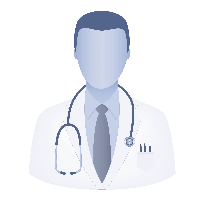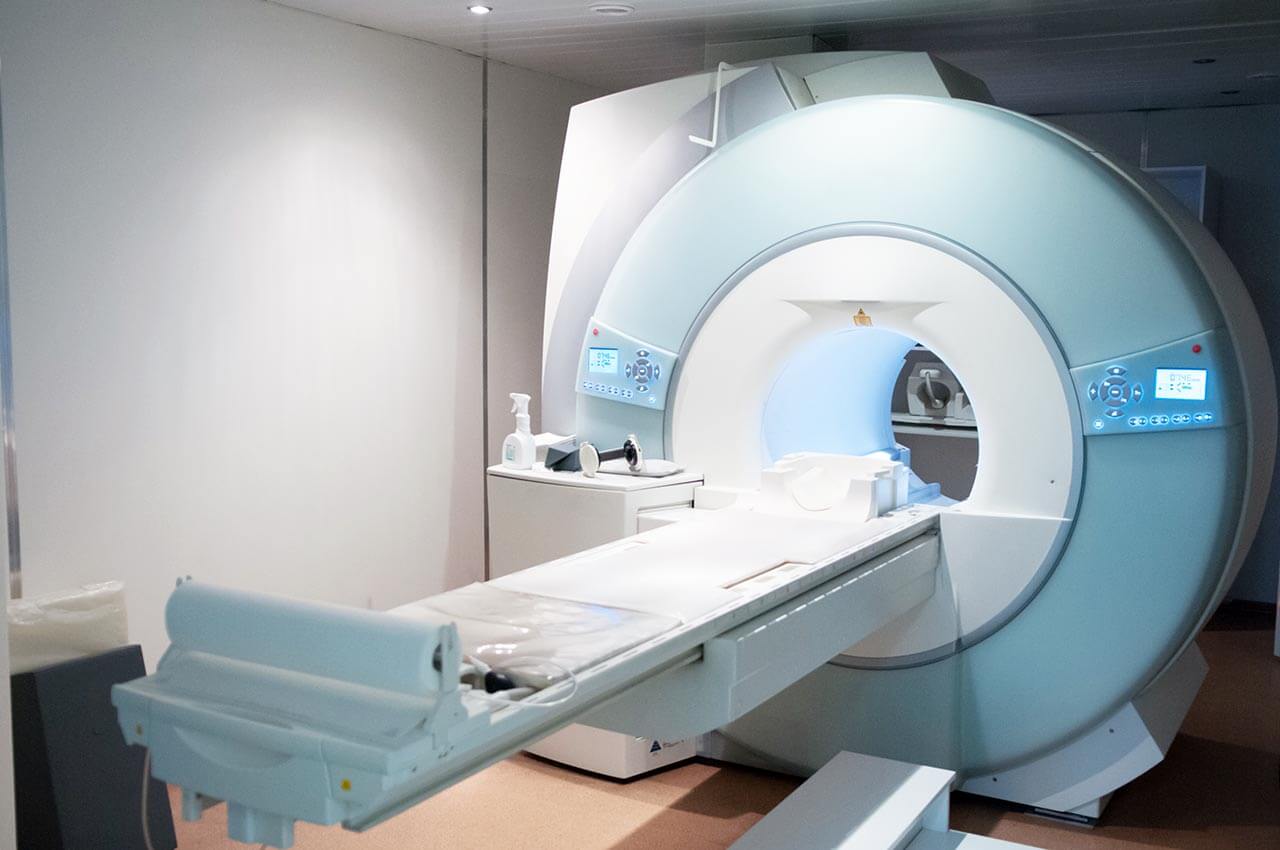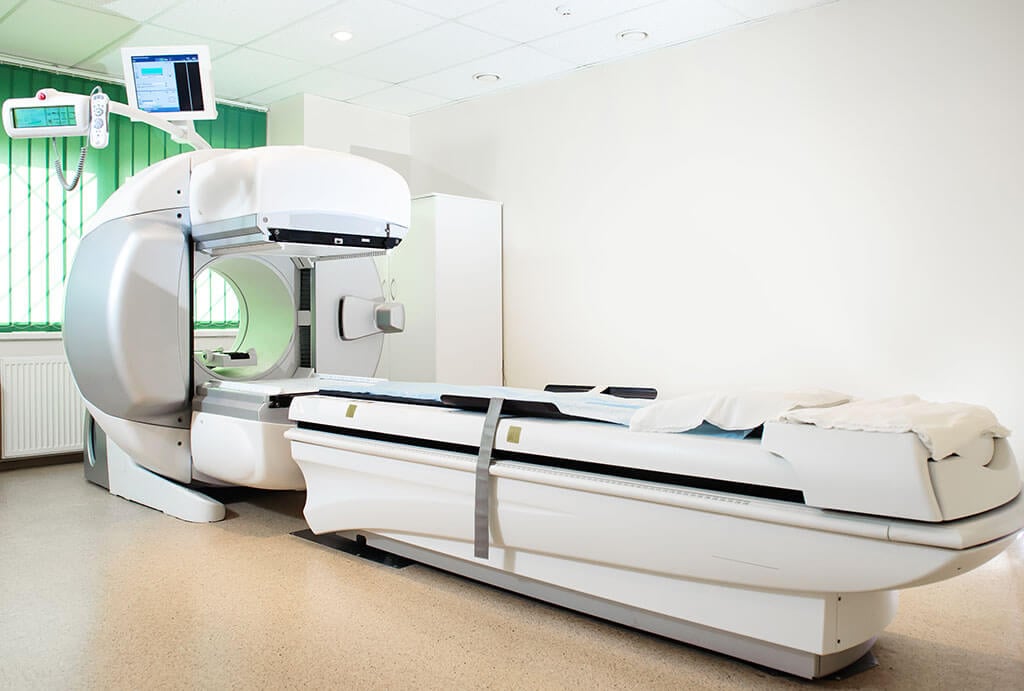
The program includes:
- Initial presentation in the clinic
- clinical history taking
- review of medical records
- physical examination
- laboratory tests:
- complete blood count
- general urine analysis
- biochemical blood test
- inflammation markers (CRP, ESR)
- blood coagulation analysis (aPTT, PT, INR)
- urine culture
- ultrasound of the urogenital system
- nursing services
- consultation of related specialists
- treatment by chief physician and all leading experts
- explanation of individual treatment plan
Required documents
- Medical records
- Kidney US (if available)
- MRI/CT scan (if available)
Service
You may also book:
 BookingHealth Price from:
BookingHealth Price from:
About the department
The Department of Nephrology at the DKD HELIOS Clinic Wiesbaden offers accurate diagnostics and effective treatment of the full range of kidney diseases. The nephrologists working in the medical facility are also competent in diagnostic examinations to detect the causes of hypertension, as well as in the therapeutic procedures to eliminate them (in cooperation with doctors from the related specialties, if required). The department provides both outpatient admission and inpatient treatment. The department has state-of-the-art equipment for diagnostic tests. The medical facility also offers the services of the Dialysis Unit where patients receive various types of renal replacement therapy – dialysis. The department's specialists have excellent qualifications and can be proud of good results in the treatment of nephrological diseases. Each treatment regimen is developed taking into account the current clinical protocols, so the patients can count on an optimal therapeutic result. The department is headed by Prof. Dr. med. Thomas Mettang.
The department's doctors have successful experience in the treatment of such kidney diseases as nephritis, pyelonephritis, glomerulonephritis, kidney stone disease, polycystic kidney disease, kidney tumors, acute and chronic kidney failure and many others. The experts are especially competent in the treatment of rare types of arterial hypertension – secondary arterial hypertension caused by Conn's syndrome, pheochromocytoma and renal artery stenosis. The nephrologists of the medical facility most often use drug therapy, which makes it possible to effectively relieve pain, eliminate edema, carry out antibacterial therapy, etc. The doctors competently combine innovative drugs, many of which are original developments of German doctors and are not available in other countries. Thanks to the use of these drugs they achieve a complete cure for kidney disease or a long-term remission. The patients suffering from arterial hypertension undergo drug therapy to normalize elevated blood pressure.
An integral part of the department's clinical practice is renal replacement therapy (dialysis). As a rule, dialysis is indicated for the patients with renal insufficiency, which affects the patient's general state of health. The essence of this method lies in the purification of blood from metabolic products accumulating in the body due to impaired kidney function using special equipment. Such an approach contributes to the normalization of the patient's condition. The department's Dialysis Unit has state-of-the-art equipment, with the help of which hemodialysis, hemofiltration, hemodiafiltration and peritoneal dialysis can be performed. Hemodialysis involves the use of a special filter (dialyzer), which helps remove metabolic waste products from the blood. It is important that this type of dialysis involves blood purification outside the human body. When carrying out hemofiltration, the patient additionally receives an intravenous injection of a replacement solution. Hemodiafiltration is carried out using a filter and large volumes of solution, which binds "harmful substances'' and subsequently removes them from the body. Peritoneal dialysis uses the peritoneum as a filter through which toxins and fluids are removed from the body. Peritoneal dialysis can also be performed at home, which is an undeniable advantage of this procedure. The optimal type of renal replacement therapy is selected individually, after an accurate assessment of the degree of kidney damage and the patient's general state of health.
The department's range of diagnostic and therapeutic services includes:
- Diagnostics
- Color duplex sonography of the kidney vessels, including in patients after kidney transplantation
- Classical ultrasound scanning of the kidneys and other abdominal organs
- Kidney biopsy
- 24-hour blood pressure measurement
- Spiroergometry
- Electrocardiography (ECG), including stress ECG
- Echocardiography
- Laboratory tests
- Assessment of acid-base balance
- Bone turnover marker testing
- Laboratory tests for kidney stone disease
- Treatment
- Drug therapy for kidney disease and arterial hypertension
- Renal replacement therapy (dialysis)
- Hemodialysis
- Hemofiltration
- Hemodiafiltration
- Peritoneal dialysis
- Other medical services
Photo of the doctor: (c) depositphotos
About hospital
The DKD HELIOS Clinic Wiesbaden has long made a name for itself in the international medical arena by introducing an optimal model of medical care, combining the use of the most advanced medical technologies, the experience of highly qualified doctors and impeccable quality of patient care. The medical facility first opened its doors to patients in 1970. The world famous Mayo Clinic Rochester in America served as a model for the design of the medical complex. Since the foundation of the clinic, the main direction of its activities has been comprehensive diagnostics of complex diseases integrated into an interdisciplinary treatment concept. Today, an integral part of clinical practice is also preventive diagnostics aimed at the early detection of pathological changes in the human body. In recent years, the clinic has been actively developing the direction of surgery, in which it has significantly succeeded. The clinic enjoys a reputation as one of the best medical facilities in Europe in the field of endocrine and colorectal surgery, as well as in hernia repair surgery.
The clinic has 24 specialized departments. Each of them offers a team of experienced doctors, whose main value is the patient's health. The work of all doctors of the medical facility is based on a single credo – "Treat not a disease, but a patient". According to this belief, the course of treatment should be as individual as possible, taking into account the patient's physical characteristics, lifestyle, diet, emotional state, etc.
The clinic's bed capacity consists of 138 inpatient beds and 60 beds in a day hospital. Many diagnostic and therapeutic procedures are performed on an outpatient basis. The diagnostic and treatment rooms, like the operating rooms of the clinic, are equipped with state-of-the-art technology to ensure the observance of strict hygiene and safety standards. The advanced medical equipment allows detecting the slightest changes in the functioning of organs and their structure with impeccable accuracy, thanks to which doctors can diagnose complex pathologies at the very early stages. This greatly increases the chances of a successful cure.
The location of the clinic in Wiesbaden, known as one of the oldest thermal spas in Europe, is another pleasant advantage for the patients. Arriving at the clinic for a preventive diagnostic examination, one can improve his health in the healing thermal springs, as well as enjoy the sightseeing of historical monuments. The medical center is located in the immediate vicinity of the English style Spa Park founded in the distant 1852, so in the free time from medical procedures one can take a pleasant walk in the beautiful park.
Photo: (с) depositphotos
Accommodation in hospital
Patients rooms
The patients of the DKD HELIOS Clinic Wiesbaden live in comfortable single and double rooms. Each patient room has an ensuite bathroom with shower and toilet. The standard patient room furnishings include an automatically adjustable bed, a bedside table, a table and chairs, a TV and a telephone.
The clinic also offers enhanced comfort rooms with spacious bathrooms, which additionally include a large mirror, hairdryer, changeable towels and toiletries. These patient rooms also have a safe for storing valuables, a free minibar with soft drinks, a flat-screen TV with satellite channels and free Wi-Fi.
Meals and Menus
The patients of the clinic are offered tasty and balanced three meals a day: breakfast, lunch and dinner. If for some reason you do not eat all the foods, you will be offered an individual menu. Please inform the medical staff about your dietary preferences prior to treatment.
The clinic also has a cozy cafe where one can taste delicious snacks, salads, main courses and desserts. One can also enjoy aromatic coffee, delicious tea and soft drinks in the cafe.
Further details
Standard rooms include:
Religion
The religious services are available upon request.
Accompanying person
During the inpatient program, the accompanying person can live with the patient in a patient room or a hotel of his choice. Our managers will help you choose the most suitable option.
Hotel
During the outpatient program, the patient can stay at the hotel of his choice. Our managers will help you choose the most suitable option.





